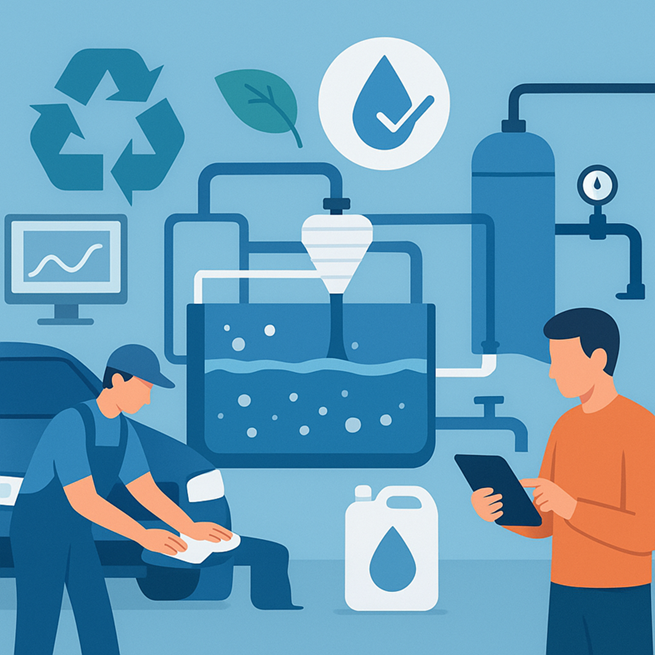
How can graywater treatment increase property values?
Greywater treatment refers to the process of recycling wastewater generated from household activities such as bathing, laundry, and dishwashing, providing significant benefits to both property owners and the environment. By collecting and reusing this low-contamination water, graywater systems can reduce reliance on potable water, lower utility bills, and contribute to sustainability efforts. The growing focus on eco-friendly living and resource conservation has made graywater treatment an increasingly prominent feature in the real estate sector, with properties equipped with these systems often fetching higher market values due to their perceived efficiency and commitment to environmental responsibility.
Greywater treatment has profound environmental benefits, particularly in areas where water is scarce. These systems relieve pressure on local water supplies, reduce energy consumption associated with water treatment, and help reduce pollution from stormwater runoff into waterways.
By promoting responsible water management, graywater systems not only benefit homeowners but also enhance the overall health of local ecosystems, fostering a culture of sustainability within communities. Economically, installing graywater treatment systems can result in significant financial savings. Homeowners can save thousands of gallons of water annually, resulting in lower water bills and reduced demand on municipal infrastructure.
As sustainability becomes a key criterion for homebuyers, properties with graywater treatment systems are increasingly attractive in competitive markets, with many buyers willing to pay more for homes that demonstrate innovative water conservation practices.
Benefits of Graywater Treatment
Greywater treatment systems offer a range of benefits that can significantly enhance property value while promoting environmental sustainability and economic savings. These systems capture and reuse wastewater from sources such as showers, sinks, and laundry, reducing reliance on potable water and lowering utility bills for homeowners.
Environmental Benefits
Greywater treatment has significant environmental benefits. By reusing graywater, these systems help conserve drinking water resources, easing pressure on local water supplies, especially in areas experiencing water scarcity.
Reduced demand for drinking water also reduces energy consumption associated with water treatment and distribution, resulting in lower greenhouse gas emissions and a reduced carbon footprint.
Furthermore, the implementation of graywater systems contributes to improving the health of local watersheds. By reducing the amount of graywater and stormwater entering combined sewer systems, these systems can help prevent flooding that often leads to the pollution of local waterways.
As a result, graywater treatment not only supports property owners but also promotes broader environmental benefits within the community.
Economic Benefits
One of the most significant direct benefits of graywater treatment is financial savings. By recycling graywater for irrigation and other non-potable uses, homeowners can save thousands of gallons of water annually—up to 19,000 gallons per household, depending on usage patterns.
This reduction in water consumption can translate into lower water bills and a reduction in the need for costly infrastructure upgrades to municipal water systems, contributing to long-term economic savings for individuals and communities.
In addition, installing graywater systems can increase property values. Properties with efficient water management systems are often considered more attractive due to their lower operating costs and commitment to sustainability. This can attract environmentally conscious buyers who are willing to pay more for homes equipped with water-efficient technologies.
Social Benefits
On the social front, graywater treatment systems can enhance the aesthetic appeal of properties by providing green landscaping and gardens without additional water costs. This contributes to neighborhood beautification and improves the quality of life for residents.
Furthermore, incorporating green infrastructure can enhance community engagement and raise awareness of the importance of water.
Impact on Property Value
Installing graywater recycling systems can significantly enhance a property’s value and appeal in the real estate market. Homes equipped with these systems are often seen as more attractive to potential buyers, especially as sustainability becomes more important to consumers.
This increased focus on environmentally friendly features can lead to higher resale values, as properties equipped with graywater systems are seen as innovative and responsible in managing water resources.
The economic benefits of graywater recycling go beyond the initial increases in property value. Homeowners can expect lower utility bills as a result of reduced water consumption, making these properties more attractive in competitive markets.
Furthermore, sustainable water solutions not only appeal to environmentally conscious buyers but also position properties favorably under local regulations that may encourage or require water conservation measures.
Research indicates that installing graywater systems positively contributes to local property value by improving aesthetics and providing recreational opportunities, creating a more attractive living environment.
As water scarcity challenges worsen due to climate change, many homeowners are actively seeking solutions that enable responsible water management, increasing demand for properties equipped with graywater systems.
However, the realization of these property value benefits may vary depending on local market conditions, regulatory environments, and community awareness of graywater systems. Homes in areas with strong environmental initiatives and consumer awareness of the benefits of sustainable features tend to achieve greater property value increases.
Implementing Graywater Systems
There are various types of graywater systems, and “laundry-to-garden” systems are a popular, low-tech option. This system does not alter the home’s plumbing; instead, it allows homeowners to divert water directly from the washing machine to water their gardens without the need for complex modifications. Additionally, graywater systems can be used to flush toilets, and in some cases, pre-treated graywater can be used for washing machines.
Installing a graywater treatment system in your home is an essential step toward sustainable living and water conservation. These systems recycle low-use water generated from household activities, such as handwashing, showering, and running the washing machine, significantly reducing overall water consumption and lowering water bills. Homeowners can save up to 40,000 gallons of water annually by installing a graywater treatment system, making it an economically viable option with environmental benefits.
Local Regulations and Permits
Before installing a graywater treatment system, it’s essential to understand local regulations and obtain the necessary permits. Many municipalities have specific guidelines for graywater treatment, use, and disposal to protect public health and natural resources.
The permitting process often includes submitting plans, inspections, and fees that can range from $50 to $1,000, which can impact the installation timeline.
Design and Installation
The design of your home’s plumbing system plays a significant role in implementing graywater treatment systems. For new construction, plumbing systems can be designed to separate graywater from blackwater from the outset. However, retrofitting existing structures may require significant modifications to separate pipes, which can impact the project’s cost and feasibility.
Maintenance and Operation
To ensure the efficiency of a graywater treatment system over time, regular maintenance is crucial. This includes cleaning and replacing filters that capture hair, lint, and other solids, which typically require monthly cleaning and annual replacement. Proper maintenance helps prevent clogs and ensures the system continues to provide environmental and financial benefits to the homeowner.
Read more about the importance of water plant maintenance for residential complexes.

























